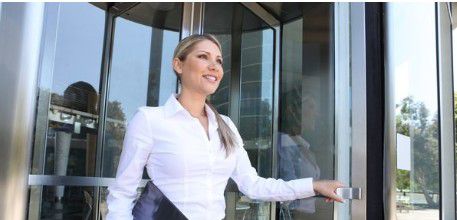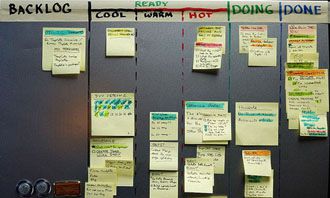避免简历面试中的10种陈词滥调
|
爱思英语编者按:你对自己的描述,在网站、自我推销资料或社交媒体上,是否跟当面聊天的完全不同?你是不是也一直在用那些陈词滥调?那些话已经让招聘者厌烦了,所以你应该避免使用。下面来看看那些最常见的陈词滥调。 Picture this. You meet someone new. "What do you do?" she asks. "I'm an architect," you say. "Oh, really?" she answers. "Have you designed any buildings I've seen?" "Possibly," you reply. "We did the new student center at the university..." "Oh wow," she says. "That's a beautiful building..." Without trying -- without blowing your own horn -- you've made a great impression. Now picture this. You meet someone new. "What do you do?" he asks. "I'm a passionate, innovative, dynamic provider of architectural services with a collaborative approach to creating and delivering outstanding world-class client and user experiences." Do you describe yourself differently – on your website, promotional materials, or especially on social media – than you do in person? Do you use cheesy clichés and overblown superlatives and breathless adjectives? Do you write things about yourself you would never have the nerve to actually say?
Here are some words that are great when other people use them to describe you – but you should never use to describe yourself: 1. "Innovative." Most companies claim to be innovative. Most people claim to be innovative. Most are, however, not. That's okay, because innovation isn't a requirement for success. If you are innovative, don't say it. Prove it. Describe the products you've developed. Describe the processes you've modified. Give us something real so your innovation is unspoken but evident... which is always the best kind of innovative to be. 2. "World-class." Usain Bolt: world-class sprinter, Olympic medals to prove it. Lionel Messi: world-class soccer player, four Ballon d'Or trophies to prove it. But what is a world-class professional or company? Who defines world-class? In your case, probably just you. 3. "Authority." Like Margaret Thatcher said, "Power is like being a lady; if you have to say you are, you aren't." Show your expertise instead. 4. "Results oriented." Really? Some people actually focus on doing what they are paid to do? We had no idea. 5. "Incredibly..." Check out some random bios and you'll find plenty of further-modified descriptors: "Incredibly passionate," "profoundly insightful," "extremely captivating..." isn't it enough to be insightful or captivating? Do you have to be profoundly insightful? If you must use over-the-top adjectives, spare us the further modification. Trust that we already get it. 6. "Motivated." Check out Chris Rock's response to people who say they take care of their kids. Then substitute words like "motivated." Never take credit for things you are supposed to do – or supposed to be. 7. "Creative." See particular words often enough and they no longer make an impact. "Creative" is one of them. "Creative" is just one example. Others include extensive, effective, proven, influential, team player... some of those terms may truly describe you, but since they are also being used to describe everyone they've lost their impact. 8. "Dynamic." If you are "vigorously active and forceful," um, stay away. 9. "Passionate." I know many people disagree, but if you say you're incredibly passionate about, oh, incorporating elegant design aesthetics into everyday objects, to me you sound over the top. The same is true if you're passionate about developing long-term customer solutions. Try the words focus, concentration, or specialization instead. Or try "love," as in, "I love incorporating an elegant design aesthetic in everyday objects." For whatever reason, that works for me. Passion doesn't. 10. "Unique." Fingerprints are unique. Snowflakes are unique. You are unique – but your business probably isn't. That’s fine, because customers don't care about unique; they care about "better." Show you're better than the competition and in the minds of your customers you will be unique. |









